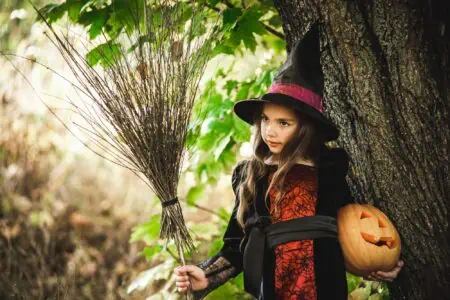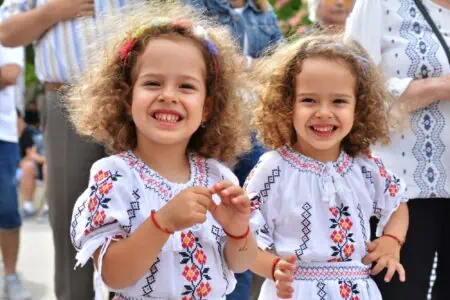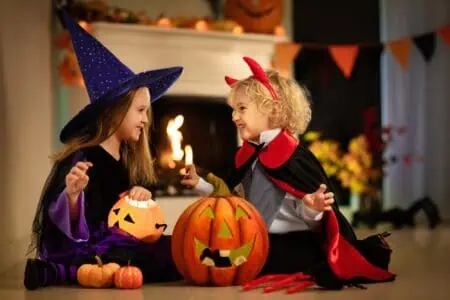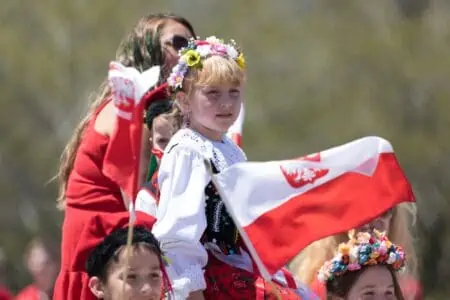Dive into the exciting world of rare last names with our collection of 100 rare gems from across the globe. From mysterious family trees, to names that hint at old-world occupations and traits, each of these uncommon last names offers a peek into a fascinating heritage and story.
Whether you’re a family history buff or just love discovering new things, this list of rare surnames will surely spark your curiosity!
100 Unusual and Rare Surnames
Discover our collection of 100 uncommon last names with unique histories and origins.
Aaltonen
Aaltonen, meaning “wave” in Finnish, reflects Finland’s deep connection to its lakes and coastal geography. This surname is relatively common in Finland but rare globally.
- Origin: Finnish
- Meaning: Wave
- Pronunciation: AH-ltoh-nen
- Variations: Aalto
- Namesakes: Juhamatti Tapio Aaltonen, a Finnish ice hockey player known for his skill and skating speed.
Alcubierre
Alcubierre, a distinguished Aragonese surname, indicates origins in the Spanish town of Alcubierre or the adjacent Sierra de Alcubierre mountains. It offers insight into the family’s geographical background.
- Origin: Aragonese, Spanish
- Meaning: Unknown
- Pronunciation: AL-coo-bee-air
- Variations: Alcubiera, Alcubierra
Allegroni
Allegroni, with roots in Florence, Italy, is an elegant and rare surname found in just one Italian commune. Likely derived from “allegra” (meaning “happy” or “joyful)”, Allegro is a fitting surname for optimistic families.
- Origin: Italian
- Meaning: Joyful
- Pronunciation: ah-leh-GROW-nee
- Variations: Allegroni
Antolínez
Antolínez, a rare Spanish surname, originates from the medieval aristocracy of Burgos, Spain. This distinguished family once served as Judges of Castile, vital in administering justice.
- Origin: Spanish
- Meaning: Unknown
- Pronunciation: ahn-toh-LEE-nehth
- Variations: Antolines, Antolín, Antolino
- Namesakes: José Antolínez, a prominent Spanish artist of the Baroque period, with works in the Prado Museum.
- Popularity: There are approximately 1,000 bearers worldwide, most residing in Burgos, Spain.
Auberon
Auberon, derived from the Old French Alberich meaning “elf ruler,” originates from the fairy king in the 13th-century epic Huon de Bordeaux. Though obscure, its mythical roots give the surname a captivating allure.
- Origin: German
- Meaning: Elf king
- Pronunciation: AW-bahr-ahn
- Variations: Oberon
Balslev
Balslev is most prevalent in Denmark and Greenland. It’s a fusion of “balsam,” referring to a type of resin or sap, and “lev,” meaning “life.” Balslev is among the best rare last names for those who enjoy the natural world.
- Origin: Denmark
- Meaning: The life of sap
- Pronunciation: BAHL-slev
- Namesakes: Lisbeth Balslev, a Danish operatic soprano.
- Popularity: Balslev is most prevalent in Denmark, ranked 540th.
Banasiewicz
Historical records indicate that the Banasiewicz family helped protect Jewish individuals during the Nazi invasion of Poland ( source). This courageous act turns the Banasiewicz surname into a symbol of strength, resilience, and compassion.
- Origin: Polish
- Meaning: Unknown
- Pronunciation: bahn-ah-see-yeh-vich
- Namesakes: Brett Banasiewicz, nicknamed “Mad Dog,” an American professional BMX rider.
- Popularity: Banasiewicz is most common in Poland, ranked 2,318th.
Belladonna
Belladonna is connected to nature and pop culture, including the deadly nightshade plant and the 1915 silent drama “Bella Donna.” As a surname, it’s uncommon, setting apart those who carry it.
- Origin: Italian
- Meaning: Beautiful lady
- Pronunciation: bell-uh-DON-uh
- Namesakes: Giorgio Belladonna, one of the greatest Italian bridge players of all time.
- Popularity: Belladonna is most prevalent in Italy, ranked 25,226th.
Bickersteth
Bickersteth is a rare English surname, likely from a village near Ormskirk, Lancashire in England. Many of its bearers have strong ties to the Church of England, adding a religious aspect to its history.
- Origin: English
- Meaning: Of Bickerstaffe
- Pronunciation: BIK-er-steth
- Namesakes: Edward Henry Bickersteth, a bishop in the Church of England during the 19th-century.
Blencowe
Blencowe is a unique surname tied to the township of Blencow in Cumberland County, England. It likely was inspired by the area’s bleak, hilly landscape, giving the surname a spooky, mysterious feel.
- Origin: English
- Meaning: Bleak hill
- Pronunciation: BLEN-koe
- Variations: Blincoe, Blencow
Braganza
Braganza originates from the Portuguese royal family, associated with the House of Braganza, founded by Afonso I. They became Portugal’s rulers in 1640 and later monarchs of Brazil. Rare outside Portugal and Brazil, Braganza signifies a notable royal heritage.
- Origin: Portuguese
- Meaning: From Bragança
- Pronunciation: bra-GAN-sa
- Namesakes: Afonso of Braganza, the Prince of Beira and heir of the House of Braganza.
Burro
Burro is mainly found in Spain’s Aragon and Madrid, with some presence in Catalonia and the Basque Country, suggesting origins in areas where donkeys were historically significant. It’s one of the strangest yet funniest names on our list. It might suit a non-conformist, stubborn family that doesn’t play by the rules.
- Origin: Spanish
- Meaning: Donkey
- Pronunciation: BUH-roh
- Variations: Burros
Calixto
Calixto is a Spanish and Portuguese family name, ultimately from the Greek “kallistos” (most beautiful). This gorgeous and rare surname is perfect for a family of beautiful people, inside and out.
- Origin: Spanish, Portuguese
- Meaning: Very beautiful
- Pronunciation: kah-LEEK-sto, ka-LEESH-to
- Variations: Calixto, Calisto
Chikwava
Chikwava is a Zimbabwean surname from the Shona people. Its specific meaning isn’t clear, but Shona names typically symbolize qualities like beauty, strength, and wisdom or relate to birth conditions, nature, or family history.
- Origin: Shona
- Meaning: Unknown
- Pronunciation: chee-KWAH-vah
- Namesakes: Brian Chikwava, a Zimbabwean writer known for his short story Seventh Street Alchemy.
Cholmondeley
Cholmondeley is an English surname with aristocratic roots, originating from a place name in Cheshire, England. The unusual pronunciation reflects the unique evolution of British aristocratic surnames, where the spoken form is often significantly different from the written form.
- Origin: English, Norman
- Meaning: Ceolmund’s clearing
- Pronunciation: CHUM-lee
- Variations: Chumley
Claverhouse
Claverhouse is linked to John Graham, otherwise known as the 7th Laird of Claverhouse. He was a prominent military leader in Scotland during the late 17th-century, a period marked by intense religious strife. Featured in Sir Walter Scott’s Old Mortality (1816), Claverhouse is deeply embedded in Scottish heritage.
- Origin: Scottish
- Meaning: Unknown
- Pronunciation: CLAV-er-hows
- Namesakes: John Graham of Claverhouse, a Scottish soldier and nobleman.
Couderé
The first known Couderé, born in the mid-1600s, originated from West-Flemish, now part of Belgium, with potential ancestral ties to Artois, Northern France. Couderé is an exceptionally rare surname, with only about 22 known bearers worldwide, highlighting its unique heritage.
- Origin: French, Belgian
- Meaning: Unknown
- Pronunciation: KOO-deh-rey
- Popularity: The 4,206,983rd most common surname in the world.
Czajkowski
Czajkowski is a noble Polish family name linked to several coats of arms. It’s derived from locations named Czajki, Czajków, or Czajkowo, all named after the lapwing bird (“czajka” in Polish).
- Origin: Polish
- Meaning: Lapwing bird
- Pronunciation: chai-KOF-skee
Daskalov
Daskalov comes from the Bulgarian word “daskal” (teacher), reflecting Bulgarian culture’s respect for education and learning. It’s relatively uncommon even within Bulgaria.
- Origin: Bulgarian
- Meaning: Son of a teacher
- Pronunciation: dah-SKAH-lov
- Variations: Daskalova
- Namesakes: Rayko Ivanov Daskalov, a Bulgarian politician who played a key role in the 1918 Vladaya Uprising.
Dios
Dios, meaning “God” in Spanish, is an unusual surname primarily used in Spain. It’s perfect for religious families wishing to honor their connection to God.
- Origin: Spanish
- Meaning: God
- Pronunciation: DEE-os, DHYOTH
- Popularity: There are approximately 3,000 people in Spain with the surname Dios.
Drobnic
Drobnic, a traditional Slovenian surname, likely originated from an ancestor with a short stature or small frame. This reflects the widespread practice of using physical traits to create surnames, providing insight into the family’s characteristics.
- Origin: Slovenian
- Meaning: Small, petite
- Pronunciation: DROB-nik
Eala
Eala is a Filipino surname potentially originating from the 1849 Claveria Decree, leading Filipinos to adopt surnames based on local features, Spanish influences, or other sources. Its precise meaning and origins remain unclear.
- Origin: Filipino
- Meaning: Unknown
- Pronunciation: EH-ah-lah
- Namesakes: Michael Eala, a professional Filipino junior tennis player.
Emeigh
Emeigh, derived from the German surname Emich, blends ancient Germanic meanings like “home” or “brave” and “powerful.” Predominantly found in Western Pennsylvania, its bearers trace their lineage back to Germany.
- Origin: English, German
- Meaning: Rich house
- Pronunciation: EE-may
- Variations: Emich, Emerich, Emmrich
- Popularity: A relatively rare option, with approximately 378 bearers in the U.S.
Featherstonhaugh
Featherstonhaugh is a historically significant English surname tied to landownership and the aristocracy. Its pronunciation is a fascinating example of how English surnames can dramatically differ from their spelling.
- Origin: Old English
- Meaning: Feather-stone clearing
- Pronunciation: FEHN-show
- Variations: Featherstone, Fetherstonhaugh, Featherstonehaugh
- Namesakes: George William Featherstonhaugh, a British-American geologist and geographer.
Feo
This unique surname is found among families in Madrid, Valencia, Castile and Leon, the Basque Country, and Catalonia in Spain. Despite its unflattering meaning, it continues to be used and proudly carried by its bearers.
- Origin: Spanish
- Meaning: Ugly
- Pronunciation: FEH-oh
Fjellstad
Fjellstad is a picturesque option among our uncommon last names, indicating a familial connection to mountainous farming areas in Norway. It’s also a village in Raelingen, Norway, home to 943 people as of 2005. The name reflects Norway’s natural beauty and rugged terrain.
- Origin: Norwegian
- Meaning: Mountain farm
- Pronunciation: FYELL-stahd
Fogdt
Fogdt is a Danish occupational surname meaning “bailiff,” originally for a sheriff or law official. It may also be a rare Polish form of the German Vogt, linking bearers to roles in administration or management.
- Origin: Danish, Polish, German
- Meaning: Bailiff
- Pronunciation: FOH-t
- Variations: Vogt, Foged
Fossey
Fossey is a rare English surname from the lost Bedfordshire location Fotsey, recorded as “Foteseige” in 969 and “Foteseye” in 1247. It combines the Old English “Fōt” (a personal name) and “ēg” (island, dry land in marsh), reflecting its landscape origins.
- Origin: English
- Meaning: Fōt’s island, dry land marsh
- Pronunciation: FAH-see
Froissart
Froissart, a French surname derived from “froisser” (to crush/crinkle), is historically significant, notably linked to Jean Froissart, a chronicler of the Hundred Years’ War. It implies a heritage of strength or resilience.
- Origin: French
- Meaning: To crush, to crinkle
- Pronunciation: FRUH-sar
- Namesakes: Jean Froissart, a notable medieval French chronicler.
Gillani
Gillani, though globally rare, is notably prevalent in Pakistan, Saudi Arabia, and the United States, linked to Sheykh Abdul Qadir Gillani, an 11th-century Iranian mystic. This connection enhances its recognition in Islamic regions and among Muslim communities worldwide.
- Origin: Iranian, Pakistani
- Meaning: Unknown
- Pronunciation: guh-LAH-nee
- Namesakes: Yousuf Raza Gillani, the former prime minister of Pakistan.
Giraldo
Giraldo comes from the ancient Germanic personal name Gerald (power of the spear). It represents strength and leadership, making it a powerful surname for its bearers.
- Origin: Spanish, Italian
- Meaning: Power of the spear
- Pronunciation: hee-RAHL-do, jee-RAHL-doh
- Namesakes: Neil Thomas Giraldo, an American musician and musical partner of Pat Benatar.
Godiff
The Godiff surname was primarily found in Lancashire, U.K., in 1891, where 91% of Godiff families were located. By 1939, many Godiffs were involved in “unpaid domestic duties,” reflecting the time’s societal roles. This surname denotes a notable historical presence in Lancashire during the late 19th- and early 20th-centuries.
- Origin: English
- Meaning: Unknown
- Pronunciation: GO-diff
Grendon
Grendon is a quaint English village known for its limestone houses and thatched roofs. This old-fashioned surname suggests an ancestral connection to this hilly village.
- Origin: English
- Meaning: Green hill
- Pronunciation: GREN-don
- Variations: Grenden, Grendin
Grondin
Grondin, an odd French surname meaning “gloomy curmudgeon,” derived from “gronder” (to scold or growl), suggesting a grumpy personality. It’s mainly found in the Northeastern U.S., particularly in Maine.
- Origin: France
- Meaning: Gloomy curmudgeon
- Pronunciation: GROHN-dan
- Popularity: Grondin is rare in the U.S., with 1,823 recorded bearers in 2000.
Gwilt
Gwilt is a rare Welsh surname derived from “gwillt” (wild). It’s primarily found in Montgomeryshire, Wales, and Shropshire, England, near the Welsh border. This rare last name suits a family with a free-spirited and adventurous nature.
- Origin: Welsh
- Meaning: Wild
- Pronunciation: GWILT
Gwynne
Gwynne is a more obscure form of the Welsh Gwyn (fair, white, blessed). It’s almost exclusively used by those with Welsh heritage, typically linked to ancestors with light complexions.
- Origin: Welsh
- Meaning: Blessed
- Pronunciation: GWIN
- Variations: Gwyn
- Namesakes: Fred Gwynne, an American actor best known for his roles as Herman Munster in The Munsters.
Häggholms
The surname Häggholms came from the Finnish name Tuomikoski, which means “bird cherry tree rapids.” It was changed to Häggholms by swapping “koski” (rapids) with “holm” (islet) for legal reasons. Everyone with the Häggholms name is related and comes from one ancestor who moved the family from Finland to Sweden.
- Origin: Swedish, Finnish
- Meaning: Bird cherry tree on the islet
- Pronunciation: HEGG-holms
- Variations: Tuomikoski
- Popularity: Häggholms is extremely rare, with fewer than a dozen bearers.
Hanschu
Hanschu is an ambiguous choice among rare surnames with several possible meanings. Some of the most likely are “John’s shoe/servant,” hinting at shoemaking, or “Hahnschellen” (rooster’s buckle), indicating blacksmithing. These meanings emphasize the occupational roots of the name.
- Origin: German
- Meaning: John’s shoe, rooster’s buckle
- Pronunciation: HAHN-shoo
- Variations: Hanschuh, Hanscheu, Hansencheu, Hantschuh
Havelock
Havelock is a rare medieval surname derived from the Old Scandinavian “Hafleikr” (sea play). It is possibly linked to the Middle English romance “Havelok the Dane,” which tells the story of a young Danish prince.
- Origin: English
- Meaning: Sea play
- Pronunciation: HAV-lock
- Variations: Havelok
- Namesakes: Robert Gary Havelock, a British former speedway rider who was World Champion in 1992.
Haviour
Haviour traces back to the late 19th- and early 20th-centuries, with the largest concentration in the U.K. in 1891 and a single family in Tennessee, U.S.A., in 1920. “Haviour” is an archaic term from Shakespeare’s works, referring to one’s conduct or behavior, adding a unique literary connection to the family’s heritage.
- Origin: English
- Meaning: Behavior
- Pronunciation: HAY-vyur
- Popularity: Haviour is extremely rare, with only eight known bearers worldwide.
Himmelstrup
Himmelstrup is a Danish surname with the poetic meaning of “heaven’s village,” suggesting a picturesque place. It’s likely of geographic origin, possibly referring to a location known for its beauty or serenity.
- Origin: Denmark
- Meaning: Heaven’s village
- Pronunciation: HEE-mel-strup
Husband
Derived from Old Norse “husbondi,” Husband initially referenced a landowning farmer, distinct from its current marital meaning. Its most notable bearer was astronaut Rick Husband, who tragically died aboard the space shuttle Columbia.
- Origin: English, Old Norse
- Meaning: Landowning farmer
- Pronunciation: HUZ-bahnd
- Namesakes: Rick Husband, an American astronaut and fighter pilot.
- Popularity: Husband is uncommon, more prevalent in England and Anglophone countries.
Iskandar
Iskandar, an Arabic adaptation of Alexander, is a rare surname, most common among Christians in Lebanon and Egypt. It traces back to Alexander the Great, symbolizing leadership and conquest.
- Origin: Arabic
- Meaning: Defender of mankind
- Pronunciation: ees-KAN-dar
- Variations: Iskander
Jeckell
Jeckell, derived from the Old Breton “Iudicael” (generous lord), indicates a noble or wealthy family known for assisting the poor. Once common in Yorkshire, Lincolnshire, and Breton settlement areas, this surname is now considered extinct or nearly so, highlighting its unique place in Breton history.
- Origin: Breton
- Meaning: Generous lord
- Pronunciation: YEH-kel, JEH-kel
- Variations: Jézéquel, Iudicael, Iezequel, Gicquel
Jestus
Jestus is thought to be a variant of Justice, traditionally given to individuals with roles in lawmaking or governance. Its bearers have remained relatively stable in number, from 96 in 1900 to about 100 in 2010, indicating its rarity.
- Origin: English
- Meaning: Justice
- Pronunciation: JES-tus
- Variations: Justice
- Popularity: Jestus is rare, with approximately 100 known bearers in 2010.
Joubert
Joubert is a regional variant of Jaubert, primarily from central-west and south-central France. It’s notably prevalent in South Africa and Namibia among descendants of Huguenot (French protestant) settlers. In South Africa, it’s pronounced “you-bear” in Afrikaans.
- Origin: French
- Meaning: Bright Geat
- Pronunciation: zhu-BEAR
- Variations: Jaubert
- Namesakes: Piet Joubert, Commandant-General of the South African Republic from 1880 to 1900.
Kalos
Kalos comes from the Polish Jewish name Kalowski but is often mistaken for Greek. Ranked as the 227,304th most common surname worldwide, Kalos is quite distinctive, suggesting its bearers are closely related.
- Origin: English, Polish, Jewish
- Meaning: Blacksmith
- Pronunciation: KAY-los
- Variations: Kalowski
- Popularity: Kalos is extremely rare, with less than 1500 bearers worldwide.
Kami
Meaning “god” or “deity,” Kami suggests a possible ancestral connection to Shinto practices or a family historically recognized for their spiritual role in their community. Although Kami is one of the least common last names, it stands out as very special.
- Origin: Japanese
- Meaning: God
- Pronunciation: KA-mee
Kaufell
Kaufell may no longer exist in a few years, with very few modern bearers. It might have derived from the German “kaufen” (to buy), but its etymology is uncertain.
- Origin: English, German
- Meaning: To buy
- Pronunciation: KAW-fell
- Variations: Kaufel
- Popularity: Kaufell is extremely rare, found in the U.S. between 1880 and 1920.
Ketteringham
Ketteringham is a rare English surname from Norfolk, named after the village of Ketteringham. It highlights a strong historical connection to the region.
- Origin: English
- Meaning: Homestead of Ketter’s people
- Pronunciation: KET-er-ing-ham
Kipiani
Kipiani comes from the noble House of Kipiani, which dates back to the 7th-century. It’s ultimately from the Georgian word “kipi” (proud). If you have this rare surname, you may come from nobility!
- Origin: Georgian
- Meaning: Son of Kipa, proud
- Pronunciation: kee-pee-AH-nee
- Namesakes: David Kipiani, a Georgian and Soviet football midfielder and manager.
Krikorian
Krikorian, an Armenian surname meaning “son of the screamer,” implies an ancestor had a loud voice. Far from boring, those named Krikorian likely have a vibrant and exciting history.
- Origin: Armenian
- Meaning: Son of the screamer
- Pronunciation: KREE-kor-ian
Krimminger
Krimminger arrived in the U.S. pre-Revolution from a single ancestor, later taking on variations like Grimminger and Crimminger. Its deep genealogical roots emphasize a story of migration and lasting family ties.
- Origin: German
- Meaning: Unknown
- Pronunciation: KRIM-ming-er
- Variations: Grimminger, Crimminger
- Popularity: Krimminger is very uncommon, primarily found in the United States.
Lefebvre
Lefebvre is an occupational French surname for an iron-worker or smith, originating from the Old French “fevre” (craftsman). While it’s more common in France, its presence is rare globally.
- Origin: French
- Meaning: Ironworker
- Pronunciation: lah-FEV-rah
- Namesakes: Henri Lefebvre, a French Marxist philosopher and sociologist.
Llamas
Llamas comes from an area named Llamas in Asturias, Spain, meaning “mud.” It can also mean “flames,” from a Spanish nickname. This name reflects a family’s roots in this Spanish region or may refer to the fiery characteristics of an ancestor.
- Origin: Spanish
- Meaning: Mud, flame
- Pronunciation: YAH-mas
- Variations: Lamas
Lerstrøm
Lerstrøm is one of the rarest surnames on our list, with only ten known bearers. The family likely chose it during a Danish government initiative to diversify common surnames like Hansen. Although obscure, Lerstrøm’s lovely meaning sets it apart.
- Origin: Danish
- Meaning: Clay stream
- Pronunciation: LEHR-strum
Lyerly
Lyerly dates back to before the U.S. Revolution, coming from a single immigrant ancestor. Although its spelling has changed many times, Lyerly remains one of the most unique, making it a distinctive option among uncommon American last names.
- Origin: German, English
- Meaning: Unknown
- Pronunciation: LIE-er-lee
- Variations: Lyerla, Lyerle, Leyerle, Lily, Lyla
MacQuoid
MacQuoid has obscure origins, possibly derived from Gaelic, indicating paternal lineage (“son of Uid”). This surname is rare, with a few modern bearers reflecting its unique place in Scottish history.
- Origin: Scottish
- Meaning: Son of Uid
- Pronunciation: mah-KWOD
- Variations: McQuoid, McQuode
Mäkelä
Mäkelä is derived from the Finnish “mäki” (hill) combined with “-lä” (a place, especially a farm). While Mäkelä is quite common in Finland, you’re unlikely to find it anywhere else, making it a Finnish family name through and through.
- Origin: Finnish
- Meaning: Hill farm
- Pronunciation: MAY-keh-lah
- Namesakes: Klaus Mäkelä, a Finnish cellist who is chief conductor of the Oslo Philharmonic.
- Popularity: Mäkelä is the fifth most common surname in Finland.
Mapletoft
Mapletoft likely combines “Maple” (the tree) with the Old Danish “toft” (meadow or paddock), originating from a Viking settlement in what is now East Anglia and parts of Central England. This rare surname reflects a historical connection to these regions.
- Origin: English, Danish
- Meaning: Maple meadow
- Pronunciation: MAY-pul-toft
Marmion
Marmion, brought to England during the Norman Conquest, is associated with medieval nobility and poetry, notably Sir Walter Scott’s poem, Marmion. Its origin is debated, possibly deriving from an unidentified Gaelic name or an Old French word meaning “monkey brat.” Found in France, Great Britain, and Ireland, the name has a rich, complex heritage.
- Origin: French, Gaelic, English
- Meaning: Unknown
- Pronunciation: MAR-mee-on
Miraculous
Miraculous is exceptionally rare and modern, likely coined from the English adjective describing something extraordinary or from a miracle. It is so unique that it barely registers in genealogical databases, suggesting it may have been adopted for its positive connotations rather than inherited through family lines.
- Origin: English
- Meaning: Wonderful
- Pronunciation: mi-RAK-yoo-lus
Mirzayan
Mirzayan comes from “Mīrzā,” a Persian title for a royal prince, high nobleman, military commander, or scholar. Mirzayan is one of the richest rare last names on our list, suggesting a family that comes from wealth.
- Origin: Persian
- Meaning: Royalty
- Pronunciation: Meer-ZAY-an
- Variations: Mirzai, Mirzaee
Mountbatten-Windsor
Mountbatten-Windsor is a powerful and exclusive surname for descendants of Queen Elizabeth II and Prince Philip. It symbolizes the union of two influential families, embodying royalty, historical significance, and an expensive legacy within the British royal family.
- Origin: English
- Meaning: Batten mountain-wind hill
- Pronunciation: MOUNT-bat-ten WINZ-er
- Namesakes: Prince Andrew Mountbatten-Windsor, the Duke of York and a member of the British royal family.
Naugain
Naugain is an exceptionally rare Indian surname, found in just 1% of Uttarakhand’s Pauri District and virtually nowhere else globally. With an estimated total of around 100 bearers, including about 5-6 families, this surname represents a unique heritage within a very localized community.
- Origin: Indian
- Meaning: Unknown
- Pronunciation: NAU-gah-een
- Popularity: Naugain is extremely rare, with possibly 100 bearers worldwide.
Nkosi
Nkosi, meaning “king,” “chief,” or “lord” in Nguni languages, is a common surname among the Nguni people of Southern Africa, which includes the Zulu, Xhosa, Swazi, and Ndebele groups. Those with the surname Nkosi indicate Nguni ancestry and is rarely heard outside this region.
- Origin: Nguni
- Meaning: King
- Pronunciation: N-kaw-see
- Namesakes: Lewis Nkosi, a South African writer and journalist who spent 30 years in exile due to his work.
Okonkwo
Okonkwo is related to Nkwo, one of the days of the Igbo week. This rare name is associated with the fictional character Okonkwo from Chinua Achebe’s 1958 novel Things Fall Apart.
- Origin: Igbo
- Meaning: Born on Nkwo day
- Pronunciation: Oh-KON-kwo
- Namesakes: Chigoziem Okonkwo, an American football tight end for the Tennessee Titans.
Ozolina
Ozolina is a Latvian surname related to bears, suggesting an ancestor with a bear-like personality or another connection to the animal. Ozolina highlights the Latvian naming tradition of incorporating personal traits and nature into family names.
- Origin: Latvian
- Meaning: Daughter of the bear
- Pronunciation: oh-zo-LEE-nah
Pamparacuatro
Pamparacuatro is a highly unique Spanish surname with the literal meaning “bread for four,” reflecting a possible historical or familial significance. This rare name is currently held by only a few individuals residing in Spain’s Castile y Leon region.
- Origin: Spanish
- Meaning: Bread for four
- Pronunciation: pam-pa-ra-KWA-tro
Peevely
Peevely is an exceptionally rare Scottish surname, with the claim that only one family in the world bears this name, totaling fewer than ten individuals. This unparalleled uniqueness places Peevely at the pinnacle of rare surnames globally.
- Origin: Scottish
- Meaning: Unknown
- Pronunciation: PEE-vuh-lee
Pendragon
Pendragon is a Welsh surname and title, famously associated with Arthurian legend, particularly Uther Pendragon, King Arthur’s father. It means “chief dragon” or “head dragon,” a metaphor for supreme leadership and power.
- Origin: Welsh
- Meaning: Chief dragon
- Pronunciation: PEN-drag-on
Poggiali
Poggiali suggests ancestral ties to hilly or mountainous regions in Italy. This reflects a common naming practice in Italy, where surnames describe the family’s location or the nature of the area where the ancestors lived.
- Origin: Italian
- Meaning: Dwellers by the hills
- Pronunciation: poh-gee-AH-lee
Quenby
Quenby originates from Whenby near York, England, known as Quennebi in 1086 and Quenby in 1338. Meaning “woman’s farmstead” or “woman’s village,” Quenby may suggest a matriarchal significance or a female-dominated settlement in medieval England.
- Origin: Old Norse, English
- Meaning: Woman’s village
- Pronunciation: KWEN-bee
Quillen
Quillen is a badass option among our uncommon last names, possibly referring to an ancestor known for hunting bear cubs or symbolizing youth and vitality. This traditional name carries a unique heritage, linking bearers to wildlife and the natural world.
- Origin: Irish
- Meaning: Descendant of the cub
- Pronunciation: KWIL-len
Quispe
Quispe is a surname from the Quechua people, native to the Andes in South America. It’s fairly common there but rare worldwide, showing the unique heritage and language of the Quechua culture.
- Origin: Quechua
- Meaning: Free
- Pronunciation: KEE-spe
Rannebarger
Rannebarger was likely an Americanized form of a German surname, possibly from “Ranne” combined with the German “-berger” (mountain, hill). The descendants of this ancestor are almost exclusively found in Illinois and Ohio.
- Origin: German, English
- Meaning: Unknown
- Pronunciation: RAN-uh-bar-ger
Rawlinson
Rawlinson is a patronymic English surname meaning “Rowland’s son,” linked to the Middle English name Raulin or Rollinson. It may also come from the Germanic Ralph, meaning “advice of the wolf.” It’s mainly found in northwestern England.
- Origin: English
- Meaning: Rowland’s son
- Pronunciation: RAW-lin-son
- Variations: Raulin, Rollinson, Ralph
- Namesakes: Sir Henry Rawlinson, a senior British Army officer in World War I.
Rugger
Rugger may be an Anglicized form of the Italian Ruggieri or Ruggeri. Both are derived from Ruggiero, the Italian equivalent of Roger (“famous spear”). This mysterious surname has a powerful ring to it!
- Origin: Italian, English
- Meaning: Famous spear
- Pronunciation: RUG-er
- Variations: Ruggieri, Ruggeri
Sacheverell
Sacheverell is an aristocratic surname of Norman French origin, introduced into England after the Norman Conquest. The original bearer likely had an occupation related to deer hunting or trading deer meat.
- Origin: French
- Meaning: Sacking the roe deer
- Pronunciation: SASH-uh-vahr-ahl
- Variations: Sachverell, Sacheverel
Shinseki
Shinseki, meaning “new barrier” or “new dam,” illustrates the Japanese tradition of choosing surnames from geographical features or occupations during the Meiji era. It may have been initially associated with a toll worker. In Japanese, Shinseki is pronounced the same as the word for “relative,” highlighting the importance of context.
- Origin: Japanese
- Meaning: The new barrier
- Pronunciation: SHIN-seh-kee
- Namesakes: Eric Shinseki, a former United States Secretary of Veterans Affairs.
Silvertant
Silvertant is a corruption of the Dutch “zilveren tant” (silver tooth). It may have been a descriptive surname for an ancestor with a silver tooth. Although unpopular, Silvertant is quite beautiful – perfect for a fantasy character.
- Origin: Dutch
- Meaning: Silver tooth
- Pronunciation: SIL-ver-tant
- Variations: Silvertand, Zilvertand
- Popularity: There are only 51 people in the Netherlands and 121 in the U.S. bearing the name.
Sombrerero
Sombrerero comes from the Spanish word for “hatmaker,” suggesting an occupational tie to hat making. It’s an unusual name, primarily used by families of Mexican descent.
- Origin: Spanish
- Meaning: Hatmaker
- Pronunciation: som-bre-RE-ro
Svanberg
Svanberg is a picturesque Swedish surname combining “svan” (swan) with “berg” (mountain, hill). This ornamental name is indicative of Scandinavia’s deep appreciation for nature.
- Origin: Swedish
- Meaning: Swam mountain
- Pronunciation: SVAN-burg, SVAN-bair-ee
Takanashi
Takanashi is a Japanese surname meaning “little birds play,” painting a picture of small birds frolicking freely without predators. Interestingly, it also means “there is no eagle,” adding depth to its interpretation. This nature-inspired name conveys a peaceful, natural harmony, highlighting a profound respect for nature.
- Origin: Japanese
- Meaning: Little birds play
- Pronunciation: tah-kah-NAH-shee
Tieck
Derived from the Middle High German “tiech” (ditch), Tieck likely initially identified ditch diggers. Its most famous bearer is poet Ludwig Tieck, a key figure in the German Romantic movement.
- Origin: German
- Meaning: Ditch
- Pronunciation: TEEK
- Namesakes: Ludwig Tieck, a renowned German poet, translator, editor, and novelist.
Tornar
Tornar originated from the English surname Turner, linked to the craft of working with a lathe. Coincidentally, it shares its meaning with the Italian and Spanish verb “tornar,” meaning “to return” or “to turn,” reflecting the surname’s occupational roots.
- Origin: English
- Meaning: Lathe worker
- Pronunciation: TOR-nar
- Variations: Turner, Durner, Tourneur, Van Tornar
Trevelyan
This rare Cornish surname highlights Cornwall’s milling heritage. The family is historically significant in Britain, with members in public service and politics. Despite its distinguished roots, it’s uncommon outside the U.K.
- Origin: Cornish
- Meaning: Settlement by the mill
- Pronunciation: TREHV-uh-lyan
- Variations: Trevillian, Trevellian
- Namesakes: Sir Charles Trevelyan, a British civil servant and colonial administrator.
Trubnikov
Trubnikov, a unique Russian surname, means “horn player” or “trumpeter,” indicating an ancestor’s role in music or military signaling. This rare family name is perfect for musicians!
- Origin: Russian
- Meaning: Horn player
- Pronunciation: TRUB-knee-kov
- Variations: Trubnik, Trubnikovsky, Trubnikova
Twelvetrees
Twelvetrees is a rare English surname possibly linked to a place with twelve trees, highlighting its historical or geographical roots. With only six individuals listed in the 1901 British Census, its uniqueness and the mysterious reference to twelve trees spark interest in its family history and etymology.
- Origin: English
- Meaning: Twelve trees
- Pronunciation: TWELVE-trees
Tzolov
A Bulgarian surname, possibly related to a specific characteristic or ancestor’s occupation. Surnames ending in “-ov” are typical in Bulgaria, indicating paternal descent.
- Origin: Bulgarian
- Meaning: Unknown
- Pronunciation: TZO-lov
- Variations: Tzolova
Ulysse
Ulysse, a surname with French and Haitian roots, is derived from the legendary Greek hero Odysseus from Homer’s “The Odyssey.” This name signifies a rich legacy of heroism and adventure.
- Origin: French, West Indian
- Meaning: To hate
- Pronunciation: yoo-LEES, YUH-lis-see
- Variations: Ulysses
Xuan
Xuan is a unique Chinese surname with origins tracing back to Bei Gongxuan, a descendant of the Yellow Emperor (Huangdi), highlighting its historical importance. It’s mainly found in the Guangdong and Guangxi provinces in China.
- Origin: Chinese
- Meaning: Proclaim, declare
- Pronunciation: SHWEN, HUEN
- Variations: Huen
Vakkilainen
Vakkilainen is a unique Finnish surname linked to Vyborg (also called Viipuri), once part of the Finnish province of Karelia, but annexed by the Soviet Union post-WWII. It means “someone from Vakkila,” with Vakkila possibly coming from a German given name, adding a weird twist to its origin.
- Origin: Finnish, German
- Meaning: A person from Vakkila
- Pronunciation: VAH-kee-lie-nen
- Popularity: Not very common, with only 198 living people currently bearing this name.
Van der Bellen
Van der Bellen is a Dutch surname indicating an ancestor who lived near a bell or was a bell maker. The Van der Bellen family has a rich legacy, linked to notable figures in Austrian politics.
- Origin: Dutch
- Meaning: From the bell
- Pronunciation: van-der-BEL-len
- Namesakes: Alexander Van der Bellen, an Austrian politician and president.
Venables
Venables is a Norman-French surname from Normandy’s town of Venables, which arrived in England with the Norman Conquest and is historically tied to English nobility. Despite its noble origins, Venables is infamously linked to Jon Venables, a convicted English killer.
- Origin: French
- Meaning: Hunting group
- Pronunciation: VEN-uh-buls
- Namesakes: Terence Venables, also called El Tel, an English soccer player and manager.
Wohlauer
Wohlauer is a rare German surname belonging to a Jewish family that moved to the U.S. from Berlin between the World Wars to escape threats in Europe. The meaning is unclear, but it may come from the German “wohl” (good, well) and the suffix “-auer,” indicating a person from a particular place.
- Origin: German
- Meaning: Good place
- Pronunciation: WOOL-hour
Wriothesley
Wriothesley has deep historical ties, linked to English nobility and the Tudor court. The most notable bearer was Thomas Wriothesley, a devious, immoral Earl and politician who served under King Henry VIII.
- Origin: English
- Meaning: Wriothesley’s clearing
- Pronunciation: RYE-zlee
- Variations: Wrythe, Risley
- Namesakes: Thomas Wriothesley, the 1st Earl of Southampton, England.
Zalkin
Zalkin is a rare Ashkenazic Jewish surname derived from the Yiddish Zalkind, which itself comes from Salomon (“peace”). It is so unique that those with this surname rarely meet others with the same name outside their own family.
- Origin: Jewish, Yiddish
- Meaning: Peace
- Pronunciation: ZHAL-kin
- Variations: Zalkind
Zapletal
Zapletal is a Czech surname meaning “limping” or “hobbling,” indicating it comes from an ancestor with this trait. This name highlights how surnames capture family history and traits, carrying their stories through time.
- Origin: Czech
- Meaning: Limping
- Pronunciation: ZAP-leh-tal
Zephyr
Zephyr is derived from Zephyrus — the Greek god of the west wind. It’s among the rarest surnames on our list, with few known bearers. This airy family name emphasizes the importance of mythology and nature in naming traditions.
- Origin: Greek
- Meaning: West wind
- Pronunciation: ZEF-her
- Variations: Zephir, Zephyrus






























